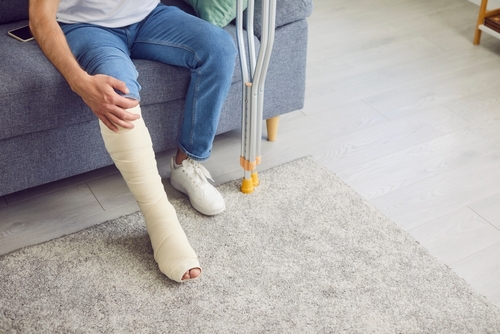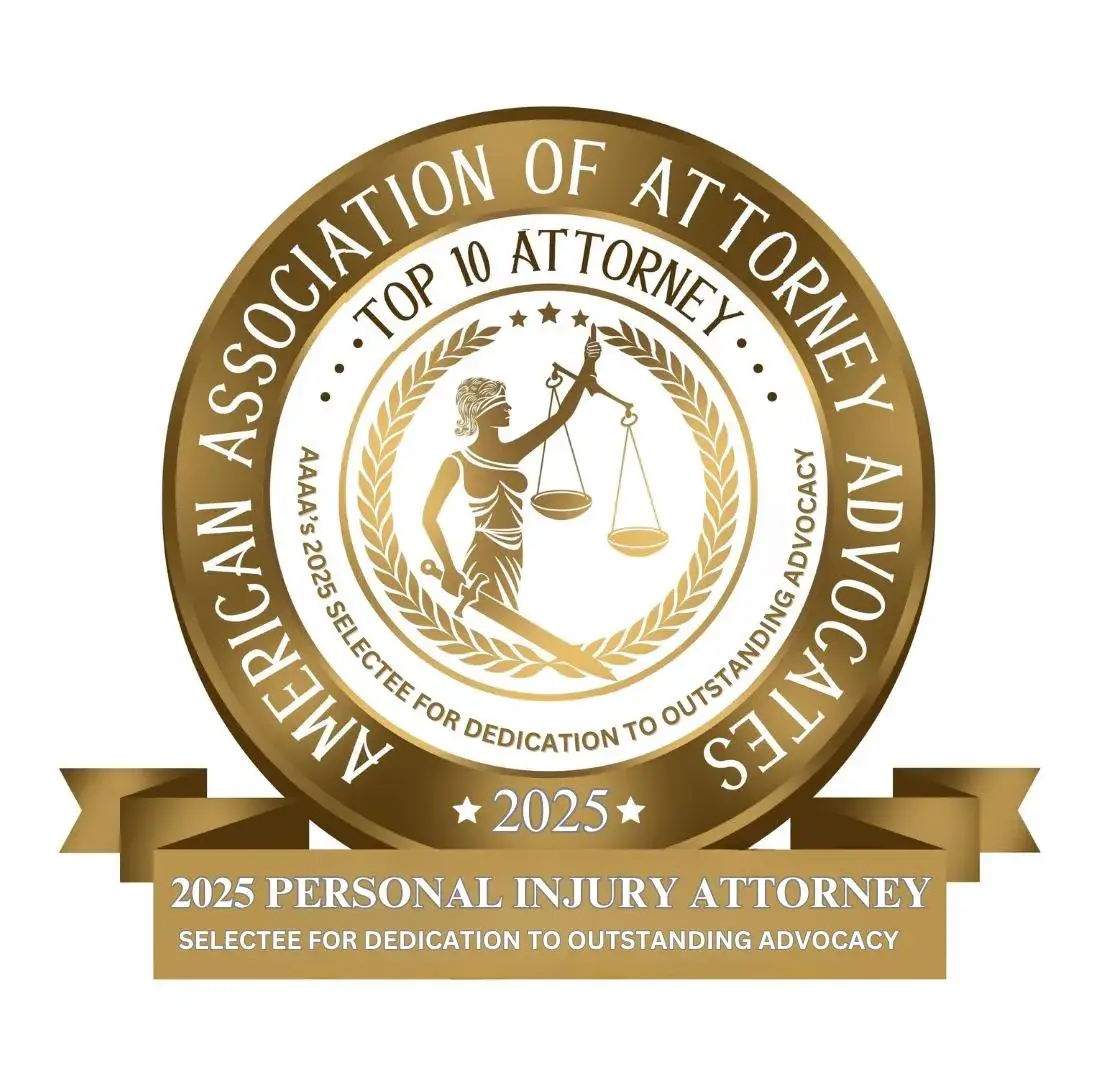
What Damages Can I Recover After a Car Crash in New Jersey?
In New Jersey, you may recover money for medical bills, lost income, vehicle damage, and the personal impact the crash has had on your life, such as pain and suffering.
The compensation available is generally grouped into two categories: economic damages, which cover your tangible financial losses, and non-economic damages, which address the human cost of your injuries. Fort Lee car accident lawyer services can help you document both types of damages and pursue the full amount you deserve.
However, New Jersey’s “no-fault” insurance system and the specific type of auto policy you carry create challenges, particularly when seeking compensation for pain and suffering.
If you have a question about your situation after a car crash, call Maggiano, DiGirolamo & Lizzi, P.C. for a free consultation at (201) 585-9111.
Key Takeaways for Recovering Damages After a New Jersey Car Crash
- Your own Personal Injury Protection (PIP) insurance is the primary source for initial medical expenses. This no-fault coverage pays for your immediate medical bills and some lost wages up to your policy limit, regardless of who caused the accident.
- You may pursue a liability claim against the at-fault driver for losses exceeding your PIP coverage. This includes compensation for vehicle repairs, extensive medical costs, lost earning capacity, and the human cost of your injuries, known as non-economic damages.
- Your ability to recover for pain and suffering is determined by the “verbal threshold” in your auto insurance policy. Most New Jersey drivers have a “Limitation on Lawsuit” policy, which requires a permanent injury to qualify for non-economic damages.
The Two Paths to Recovery: Breaking Down New Jersey’s System
Your financial recovery in New Jersey typically follows two distinct tracks:
Track 1: Your Own PIP Insurance (No-Fault Coverage)
This is your first line of defense for immediate expenses. Your own Personal Injury Protection (PIP) coverage pays for your medical bills and a portion of your lost wages, no matter who caused the crash.
New Jersey law requires every driver to carry at least $15,000 in PIP benefits. This is designed to get you immediate medical help without having to wait for a lengthy fault investigation.
However, with the rising cost of healthcare, it is common to exhaust this limit quickly, especially after a serious injury.
Track 2: A Claim Against the At-Fault Driver (A Liability Claim)
This is the path for recovering all the damages that your own PIP policy does not cover.
This includes money for your vehicle repairs, any medical bills that exceed your PIP limit, long-term lost income, and the full value of your pain and suffering. I Need a Lawyer support can help you pursue these damages and protect your rights. The remainder of this article will focus on the damages available through this second track.
Economic Damages: Calculating the Tangible Costs of the Crash
After a crash, the bills start arriving almost immediately. Medical statements, therapy invoices, and letters from your employer about missed work create immense financial pressure. You may find yourself watching your savings dwindle while you’re still trying to recover physically. What about the surgery you might need next year? Or the income you’ll lose during that recovery? These future costs are typically far greater than the initial bills you see.
The law allows you to demand payment for every single documented cost that resulted from the other driver’s negligence. We work to identify and prove all of them, including:
Current Medical Expenses
This covers every healthcare cost you have already incurred.
- Examples: The ambulance ride, emergency room treatment, hospital stays, surgeries, diagnostic imaging like MRIs and X-rays, prescription medications, and physical therapy sessions.
Future Medical Care
A settlement must account for the medical care you will reasonably need for the rest of your life.
- Examples: Future corrective surgeries, ongoing pain management injections, long-term physical therapy, or assistive devices like a wheelchair or home modifications.
Lost Wages and Income
This compensation includes the salary you lost while out of work and any other income you missed.
- Examples: Lost overtime opportunities, missed bonuses or commissions, and any sick or vacation days you were forced to use. We gather pay stubs, employment records, and tax returns to prove the full extent of this loss.
Loss of Future Earning Capacity
What if your injuries prevent you from returning to your old job, or from working at all? This damage category compensates you for the money you would have earned if not for the injury. This damage addresses the reality that the crash has diminished your future earning potential. File a Car Accident Claim to seek compensation for these lost future earnings and protect your financial stability.
Property Damage
This primarily covers the cost to repair your vehicle or, if it was declared a total loss, its fair market value. It also includes any other personal property that was damaged in the crash, such as a laptop, cell phone, or child’s car seat.
Non-Economic Damages: Putting a Value on the Human Cost
The most serious losses from a car crash aren’t always the ones with a clear price tag. How do you bill for chronic pain or the inability to pick up your child? New Jersey law recognizes these “non-economic” damages. They are meant to compensate you for the ways the injury has rewritten your daily life. While no amount of money undoes the harm, this compensation acknowledges your suffering and provides resources to help you build a new normal. Held Liable for a Car Accident claims often include these non-economic damages when proving the full impact of an injury.
Proving these damages requires telling your story effectively through medical records, personal journals, and testimony from friends and family. We help you assemble this evidence to show the true impact on your life.
- Pain and Suffering: This compensates you for the physical pain and discomfort your injuries have caused, both in the past and what you will likely endure in the future. A serious back injury, for example, might cause pain that flares up for decades.
- Emotional Distress and Mental Anguish: Crashes are traumatic events. You are compensated for conditions like anxiety, depression, insomnia, and Post-Traumatic Stress Disorder (PTSD). A new fear of driving is common, and for residents in communities like Fort Lee or Englewood where commuting is a daily reality, this is particularly disruptive.
- Loss of Enjoyment of Life: This legal concept means you are no longer able to do the things that once brought you joy.
- Examples: Being unable to play with your children, work in your garden, participate in community sports, or attend services at your synagogue or church in Teaneck.
- Loss of Consortium: This is a specific claim available to the spouse of an injured person. It is intended to compensate them for the negative impact the injuries have had on the marital relationship, including the loss of companionship, affection, and support.
What Is the “Verbal Threshold” and How Does It Affect My Claim for Pain and Suffering?

The type of car insurance policy you chose months or even years ago has a massive impact on your ability to recover money for pain and suffering today. In New Jersey’s “choice no-fault” system, you select a policy that determines your right to sue. A Car Accident Settlement will depend on the coverage you chose and how that choice affects your right to claim damages.
The “Limitation on Lawsuit” Option (Also known as the Verbal Threshold)
This is the standard, more affordable option that most New Jersey drivers have. If you have this policy, you may only sue for non-economic damages (like pain and suffering) if your injury is considered permanent and falls into one of six specific categories under N.J.S.A. 39:6A-8:
- Dismemberment (loss of a body part)
- Significant disfigurement or scarring
- A displaced fracture
- Loss of a fetus
- Death
- A permanent injury (defined as a body part that has not healed to function normally and will not heal to function normally with further medical treatment). This is the most common category and is frequently disputed by insurance companies.
The “Unlimited Right to Sue” Option
This is a more expensive policy option. If you chose this, you have the right to sue the at-fault driver for any amount of pain and suffering, no matter how minor or severe your injury is.
The policy language is confusing, making it difficult to determine your coverage on your own. We will review your insurance declaration page for you to determine exactly what your rights are and build the best strategy for your case.
What if I Was Partially at Fault? New Jersey’s Comparative Negligence Rule
Under New Jersey’s Modified Comparative Negligence rule, this does not automatically prevent you from recovering damages.
A court or jury will assign a percentage of fault to each person involved.
- As long as your share of the fault is 50% or less, you may still recover compensation.
- Your final award is simply reduced by your percentage of fault.
If you are found to be 51% or more at fault, you are barred from recovering any damages from the other driver. Our role is to protect you from being assigned an unfair share of the blame.
Are Punitive Damages Available?
Punitive damages are different from the other types of compensation. They are not meant to pay you back for a loss; they are intended to punish a defendant for extremely reckless or malicious behavior and deter similar conduct in the future.
A clear example would be a driver who caused a crash while knowingly driving a commercial truck with failed brakes, or a drunk driver who was traveling at 100 mph in a school zone.
These damages are rare in typical car accident cases because the at-fault driver’s conduct must go far beyond simple carelessness. In New Jersey, punitive damages are also capped by law at either five times the amount of your compensatory damages or $350,000, whichever is greater. It is wise to Hire an Attorney After a Car Accident to evaluate if punitive damages apply and to protect your right to full compensation.
Frequently Asked Questions About Car Crash Damages
How long do I have to file a claim in New Jersey?
You have two years from the date of the accident to file a lawsuit for personal injuries under N.J.S.A. 2A:14-2. For claims involving only property damage, the deadline is six years. If you miss these deadlines, you lose your right to pursue compensation forever.
Does New Jersey have a cap on how much I may receive for pain and suffering?
No. Unlike some other states, New Jersey does not place a monetary cap on compensatory damages, which includes awards for pain and suffering. The only statutory cap is on the punitive damages discussed earlier.
What if the at-fault driver has no insurance or not enough insurance?
This is why you have Uninsured/Underinsured Motorist (UM/UIM) coverage on your own policy. This coverage allows you to make a claim with your own insurance company for the damages the at-fault driver should have paid, protecting you from their lack of coverage.
Am I able to recover damages if I was a passenger in the car?
Yes. As an injured passenger, you are almost never considered at fault. You typically have the right to file a claim against the insurance policy of the driver of the car you were in, the driver of the other vehicle, or both.
I live in Palisades Park but the crash happened in Hackensack. Where do I file my case?
In New Jersey, a lawsuit is generally filed in the county where the accident occurred or where the defendant lives. We handle cases throughout Bergen County and Northern New Jersey and will ensure your case is filed in the proper court.
Secure Your Financial Future After a Crash

We regularly help families in Fort Lee, Teaneck, Hackensack, and the surrounding diverse communities. We understand the roads, the courts, and the unique challenges people here face after a serious collision. You didn’t ask for this, but you do not have to manage the financial consequences alone.
If you’re ready to discuss your case, call Maggiano, DiGirolamo & Lizzi, P.C. today at (201) 585-9111.



















